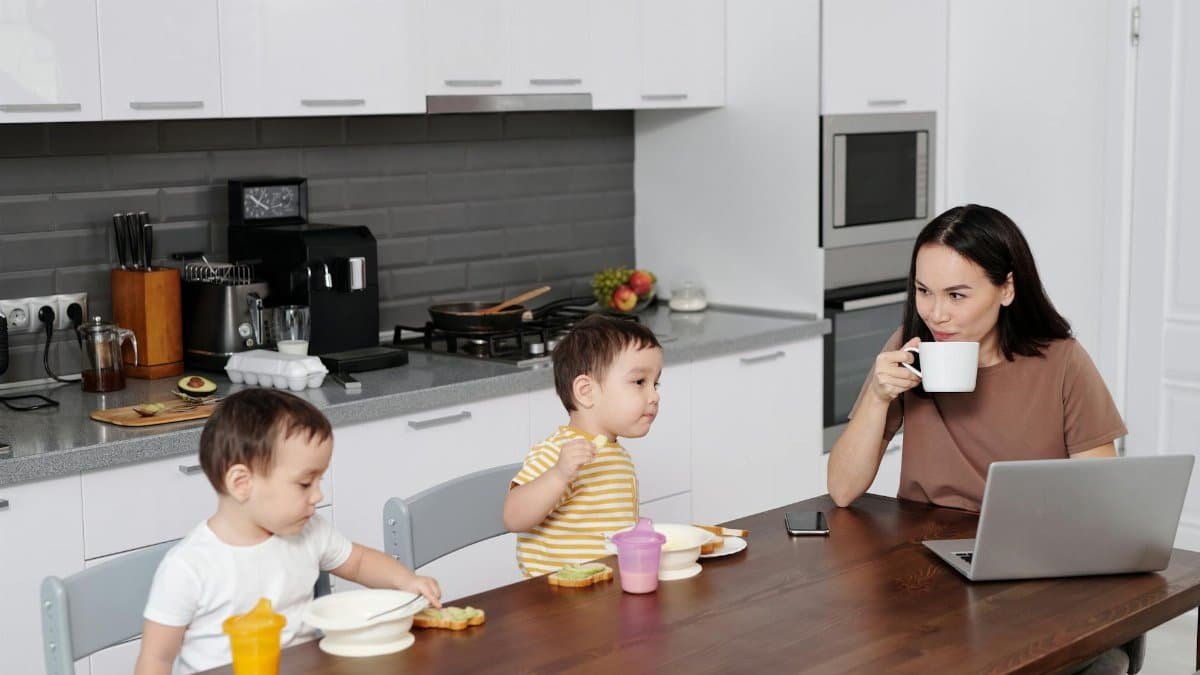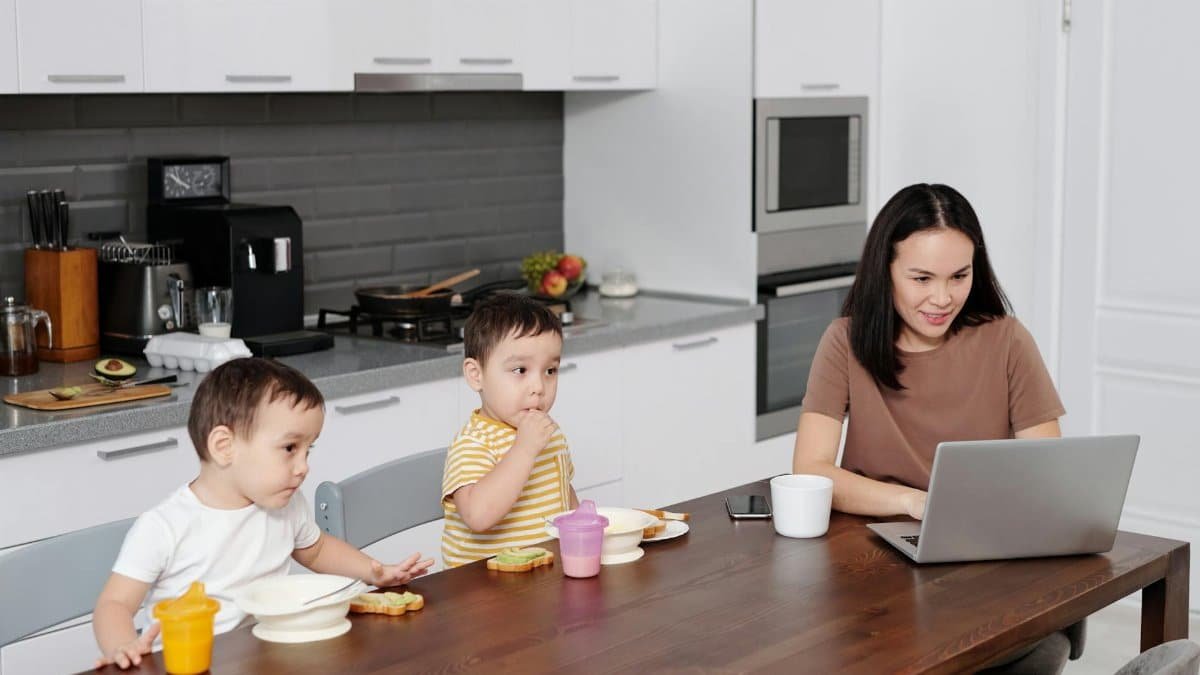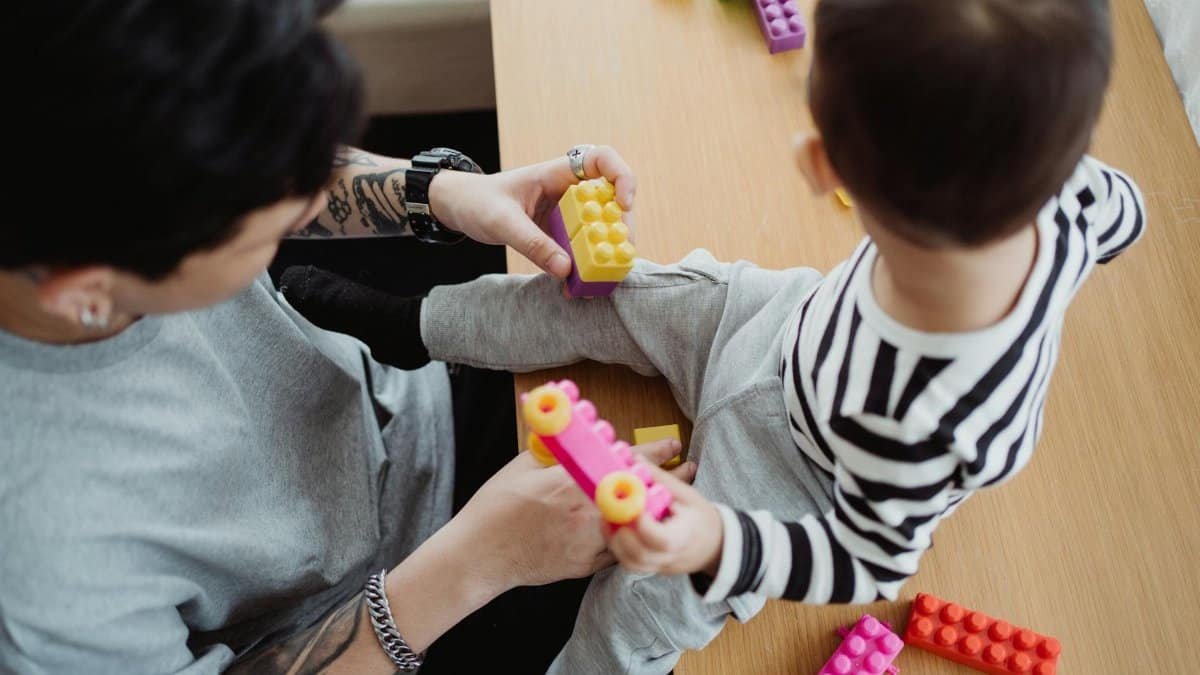Imagine a quiet dawn shattered by the patter of tiny feet and a chorus of “Mama, up!” For many parents across the U.S., this is the daily reality of crafting a morning routine with toddlers in the mix. The chaos isn’t just noise—it’s a test of patience, time, and ingenuity. How do you carve out a semblance of order when a two-year-old can derail your best-laid plans with a single spilled sippy cup? As the sun rises in 2025, more families are wrestling with this very challenge, seeking ways to balance personal needs with the unpredictable energy of young children. The quest for a functional morning routine toddlers can’t completely upend isn’t just about survival. It’s about reclaiming small pockets of sanity in a world that often feels turned upside down by sticky fingers and endless demands.
The Chaos of Toddler Mornings

Waking up to a toddler’s boundless energy can feel like stepping into a whirlwind. One moment, you’re sipping coffee; the next, you’re negotiating over mismatched socks or wiping oatmeal off the walls. This isn’t just anecdotal—studies show that parents of young children report significantly higher stress levels in the early hours compared to other times of day. A 2021 report from the American Psychological Association highlighted how morning routines often amplify parental anxiety, especially when unpredictable behavior from little ones throws off schedules. For many, the lack of control is the real culprit. Toddlers thrive on spontaneity, while adults crave structure. Bridging that gap becomes the unspoken mission of every bleary-eyed caregiver.
Take a scene from a suburban home in Ohio last week: a mother, juggling a laptop and a toddler’s breakfast, sighed as her child decided the dog’s bowl was a better plate. “It’s like I’m playing chess with someone who doesn’t know the rules,” she muttered. Her frustration echoes a broader truth—mornings with toddlers aren’t just busy; they’re a battleground where routine meets rebellion.
Why Routine Matters More With Toddlers

Ask any child development expert, and they’ll tell you structure isn’t just for adults. Toddlers, despite their knack for chaos, actually benefit from predictable patterns. Research from the Centers for Disease Control and Prevention emphasizes that consistent routines help young children feel secure, reducing tantrums and anxiety. Mornings, in particular, set the tone for the day. A shaky start can ripple into crankiness by noon. But here’s the catch: what works for a child—say, a slow, playful wake-up—often clashes with a parent’s need to get out the door.
The tension isn’t just logistical. It’s emotional. Parents often feel torn between nurturing their child’s pace and meeting external demands like work or daycare drop-offs. Striking a balance in a morning routine toddlers can adapt to means rethinking what “routine” even looks like. It’s less about rigid timelines and more about flexible anchors—small, repeatable actions that signal what’s next, even if the execution wobbles.
Building Blocks of a Toddler-Proof Morning

Start with the basics, but keep expectations low. A successful morning routine with toddlers isn’t a polished performance; it’s a rough draft that evolves. Begin by identifying non-negotiables—getting dressed, eating breakfast, brushing teeth. Then, build in buffers. If a task takes five minutes on a good day, plan for ten. Data from a 2020 study by the Pew Research Center shows that parents who incorporate extra time into schedules report lower frustration levels, even when disruptions happen.
Visual aids can be a game-changer. Picture a simple chart on the fridge with stickers for each completed step—putting on shoes, packing a bag. One parent shared in an online discussion how this turned mornings from a shouting match into a scavenger hunt. Her toddler raced to “win” stickers, oblivious to the fact that he was actually following a plan. Small wins like these aren’t just practical; they’re a reminder that control is possible, even in tiny doses.
Navigating the Emotional Minefield

Some mornings, it’s not the spilled cereal that unravels you—it’s the guilt. Rushing a toddler through breakfast while glancing at the clock can feel like failing at parenting. A 2019 study published through the National Institutes of Health found a direct link between parental stress and increased behavioral issues in children, creating a vicious cycle during high-pressure times like mornings. The takeaway? Slowing down, even for a minute, isn’t indulgent—it’s strategic.
Try a quick reset. One father described pausing mid-morning chaos to sit on the floor with his daughter, humming a silly tune while tying her shoes. It took an extra two minutes, but the tantrum brewing over a lost toy fizzled out. These micro-moments of connection don’t erase the clock, but they can shift the mood. They remind both parent and child that the morning isn’t just a race; it’s a shared journey, messy as it may be.
Adapting to the Unpredictable

Toddlers are tiny agents of chaos, and no amount of planning can account for every meltdown or surprise diaper blowout. The key to a morning routine toddlers can’t completely derail lies in flexibility. Think of your plan as a loose framework, not a strict itinerary. If breakfast turns into a 20-minute negotiation over banana slices, shift gears. Maybe today’s toothbrushing happens in the car. The goal isn’t perfection; it’s progress.
This mindset shift is harder than it sounds. Parents often cling to ideals of what mornings “should” be—calm, efficient, Instagram-worthy. Reality, though, demands improvisation. A working mother in Atlanta learned this the hard way when her son refused to leave the house without his toy dinosaur. Instead of fighting, she packed it along and turned the commute into a storytelling game. Sometimes, bending the routine is the only way to keep it from breaking.
Carving Out Space for Yourself

Amid the whirlwind of toddler demands, personal needs often get buried. A quick shower or a moment of quiet before the day explodes can feel like a distant dream. Yet, prioritizing even a sliver of self-care in a morning routine toddlers dominate isn’t selfish—it’s survival. Experts note that even five minutes of mindfulness or preparation can lower stress hormones significantly. The trick is making it happen without guilt.
Some parents wake up 15 minutes earlier, tiptoeing around creaky floorboards to sip coffee in silence. Others multitask—stretching while supervising a toddler’s breakfast or listening to a podcast during diaper changes. It’s not glamorous, but it’s grounding. One single dad admitted he started hiding in the bathroom for a quick meditation app session, door locked against tiny intruders. “It’s my fortress,” he laughed. These stolen moments aren’t just breaks; they’re lifelines in a sea of sippy cups and scattered toys.
Teamwork Makes the Morning Work

If you’re not parenting solo, lean on your partner or support system. Dividing tasks can transform a frantic morning into a manageable one. One spouse handles breakfast while the other tackles dressing. Or a grandparent swings by to read stories, buying a precious 10 minutes to pack lunches. The point isn’t just efficiency—it’s shared burden. When everyone pitches in, the morning routine toddlers test feels less like a solo marathon.
Communication is key. Sit down weekly to tweak the plan as needs shift—toddlers grow, schedules change. A couple in Seattle found that a quick Sunday night chat over who’s on “diaper duty” versus “drop-off” made weekdays smoother. It’s not romantic, but it’s real. And in the haze of early parenthood, real is often better than perfect. Small alliances like these turn chaos into something closer to choreography, even if the steps occasionally falter.
Embracing the Imperfect Dawn

Let’s face it: no morning with a toddler will ever be seamless. There will always be a lost shoe, a sudden tantrum, or a mysterious marker drawing on the wall. But chasing perfection in a morning routine toddlers inhabit misses the point. It’s about crafting a rhythm that bends without breaking, one that holds space for both a child’s wonder and a parent’s sanity. In 2025, as families navigate an ever-busier world, this balance feels more vital than ever.
So, next time the cereal hits the floor, take a breath. Remember that these messy mornings are fleeting. Years from now, the sticky hands and giggled protests might just be the memories that linger most. Until then, keep tweaking the routine. Keep showing up. Because even on the hardest days, there’s something quietly heroic about facing the dawn with a toddler by your side.

A certified hypnotherapist, Reiki practitioner, sound healer, and MBCT trainer, Christopher guides our journey into the spiritual dimension, helping you tap into a deeper sense of peace and awareness.
Disclaimer
The content on this post is for informational purposes only. It is not intended as a substitute for professional health or financial advice. Always seek the guidance of a qualified professional with any questions you may have regarding your health or finances. All information is provided by FulfilledHumans.com (a brand of EgoEase LLC) and is not guaranteed to be complete, accurate, or reliable.
